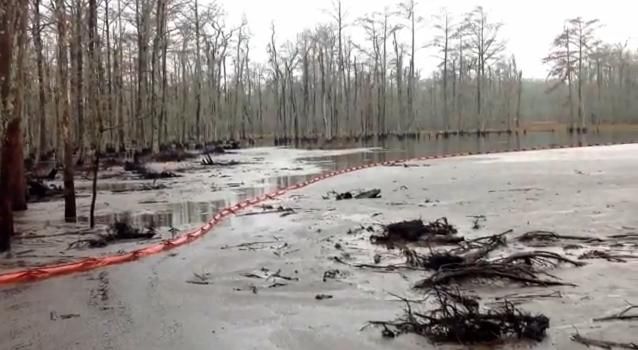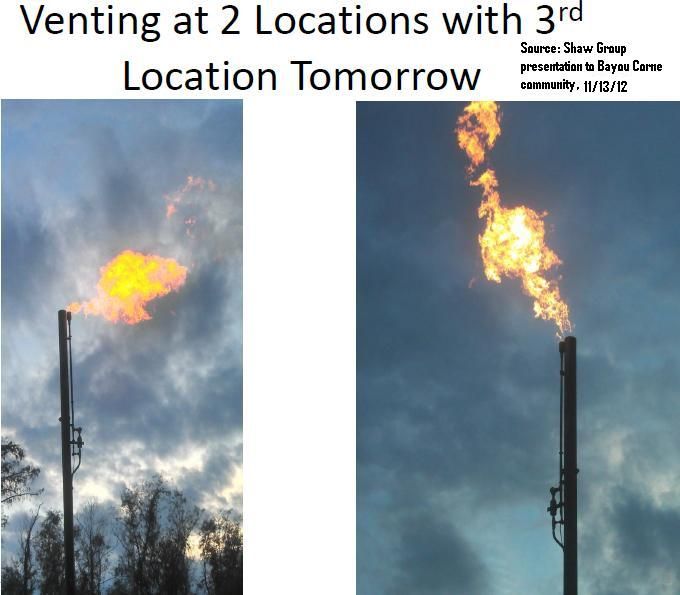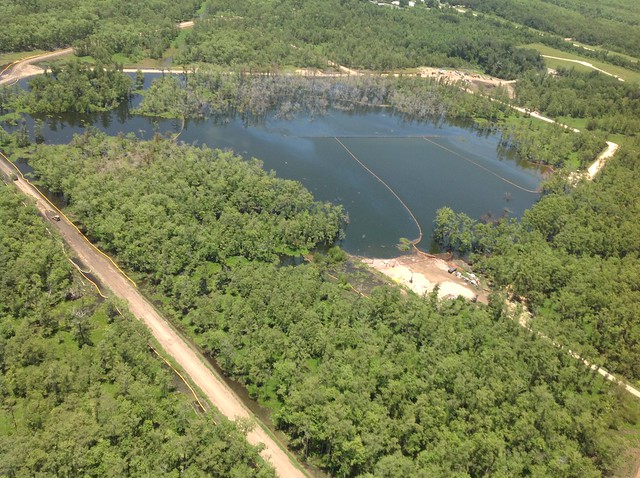This sounds like there was some sort of plunger-like force created in the sinkhole during the recent 'burp.'
http://theadvocate.com/home/4538683-...n-hydrocarbons
Assumption sinkhole ?burps? vegetation, hydrocarbons
david j. mitchell
River Parishes bureau
November 28, 2012
[snip]
Cranch said the mix of debris, dirt and emulsified oil that surfaced and broke apart Tuesday appeared to have originated from the sinkhole?s bottom.
?The point being, it?s not a belch of just crude oil,? Cranch said.
Boudreaux said before the sinkhole disgorged the material, the water level dropped by about 6 inches and then returned to its original level. The size of the water level change was based on measurements of hydrocarbon rings left on trees...
david j. mitchell
River Parishes bureau
November 28, 2012
[snip]
Cranch said the mix of debris, dirt and emulsified oil that surfaced and broke apart Tuesday appeared to have originated from the sinkhole?s bottom.
?The point being, it?s not a belch of just crude oil,? Cranch said.
Boudreaux said before the sinkhole disgorged the material, the water level dropped by about 6 inches and then returned to its original level. The size of the water level change was based on measurements of hydrocarbon rings left on trees...
8:25 p.m. Bayou Corne Field Update
November 27, 2012
[snip]
Sinkhole Site ?
Settling/shifting of material underlying sinkhole created disturbance of water in sinkhole in morning roughly coinciding with USGS report of observance of seismic activity ? crude oil emulsion and woody debris from sinkhole bottom observed rising to surface, water from nearby swamp seen flowing into sinkhole. Surface activity observed for several minutes before water calmed again.
November 27, 2012
[snip]
Sinkhole Site ?
Settling/shifting of material underlying sinkhole created disturbance of water in sinkhole in morning roughly coinciding with USGS report of observance of seismic activity ? crude oil emulsion and woody debris from sinkhole bottom observed rising to surface, water from nearby swamp seen flowing into sinkhole. Surface activity observed for several minutes before water calmed again.




Leave a comment: